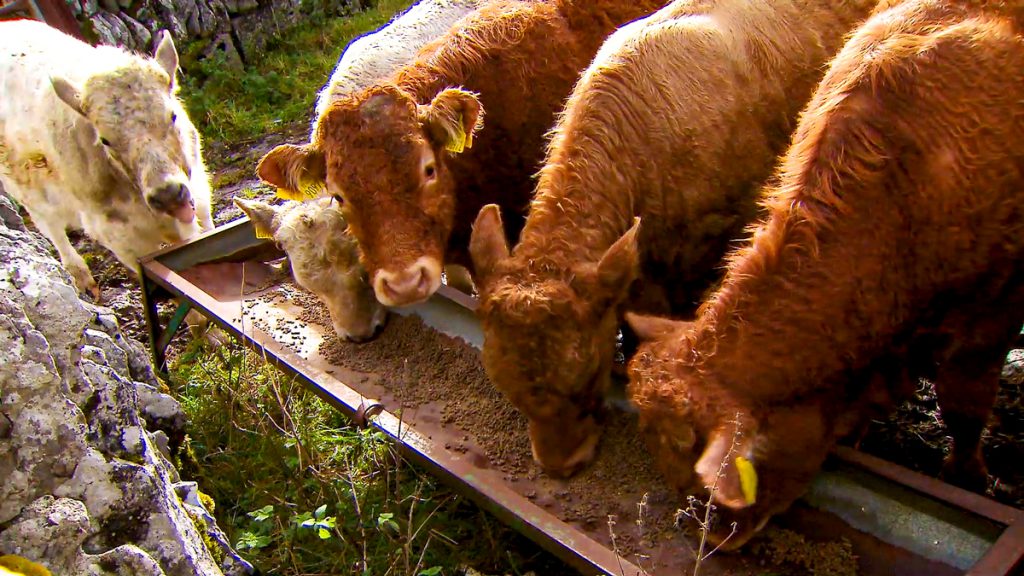The Beef Environmental Efficiency Programme – Sucklers (BEEP-S) under the new Beef Sector Efficiency Pilot for 2021 was opened on Tuesday, March 16 by the Department of Agriculture, Food and the Marine (DAFM).
The short and simple answer to what is involved with the BEEP-S 2021 scheme is that it involves similar elements to the BEEP-S scheme which ran during 2020.
A key point for farmers that participated in the scheme last year, is that it does not automatically mean that you are signed up for the scheme which will run this year. You need to re-submit an application to take part in this year’s scheme through www.agfood.ie.
What do farmers need to do?
Similar to last year, the mandatory action included involves the weighing of cow and calf pairings.
Rate of payments for the scheme:
- Mandatory action (for first 10 weighings) – €50/pair ;
- Mandatory action (for weighings 11-100) – €40/pair ;
- Optional action one – €30/pair ;
- Optional action two – €10/pair.
Weighing requirement
As part of the mandatory section of the scheme, participants must weigh each unweaned calf and its dam and then submit the weights to the Irish Cattle Breeding Federation (ICBF). From May 1, 2021, all weights should be submitted within seven days of weighing and no later than November 1, 2021.
Calves that are eligible for weighing must have been born between July 1, 2020 and June 30, 2021. The unweaned calf and dam must be weighed on the same holding on the same day.
Only scales that are registered and used in accordance with the requirements, may be accepted in the recording of weights for the scheme.
If you own a set of scales (either existing or new) and plan to use them (or lend them to another farmer) for the purpose of BEEP-S, then you must pre-register the scales before the weight recording event.
Farmers should note that scales previously registered with ICBF for BEEP in 2019 or BEEP-S in 2020 must be re-registered for this year’s programme. Weights must be submitted between January 1, 2021 and November 1, 2021.
Optional action one – Meal feeding or Vaccination
Farmers also have the option to participate in either a meal feeding option to their calves or the implementation of a vaccination programme.
In the meal feeding option, calves must be supplemented with a compound feeding stuff/meal containing appropriate mineral and vitamins for four weeks pre-weaning and two weeks post-weaning.
In the event of an inspection, the receipts, invoices and labels of all compound feeding stuffs, and/or straights (feed materials) and complementary mineral mixtures purchased, must be retained and made available for checking.
Vaccination options
For farmers selecting the vaccination section of the programme, ideally veterinary advice should be sought for a suitable vaccination programme – where the attending veterinarian has specific knowledge of the farm.
From the terms and conditions listed by the DAFM, there are two options which participants can choose from when it comes to the administration of vaccinations.
- Single RSV and Pi3 intranasal two to four weeks before weaning / housing / sale;
- At the same time, a single (or two dose) IBR live intra-muscular injection (two to four weeks before weaning / housing / sale).
- First subcutaneous injection of RSV, Pi3 and Mannhaemia haemolytica dead, six to eight weeks before weaning / housing / sale;
- Second subcutaneous injection of RSV, Pi3 and Mannhaemia haemolytica dead, two to four weeks before weaning / housing / sale;
- At the same time as the second injection, a single IBR live intra-muscular, two to four weeks before weaning / housing / sale.
The procedures in both options must be completed in full and are equally applicable to both spring and autumn-born calves.
Optional action two – feacal egg testing
The second optional action involves the collection of dung samples for faecal egg testing to assess the presence of liver or rumen fluke.
All faecal samples collected must be fresh and samples submitted to an approved laboratory on or before October 1, 2021.
When collecting the samples, the cows should be placed in a clean pen until such time that a number of faecal deposits have been observed. If you have 10 eligible cows, all must be sampled. However, if only you have five eligible cows, you still must submit 10 samples as the lab cannot otherwise verify that you have met the conditions of scheme.
Closing date for applications
For suckler farmers that are interested in participating in the BEEP-S scheme this year they are reminded that the closing date for applications is Monday, April 26.
Applications for the scheme can be lodged through agfood.ie. Farmers can also view the full terms and conditions of the scheme on that website.



